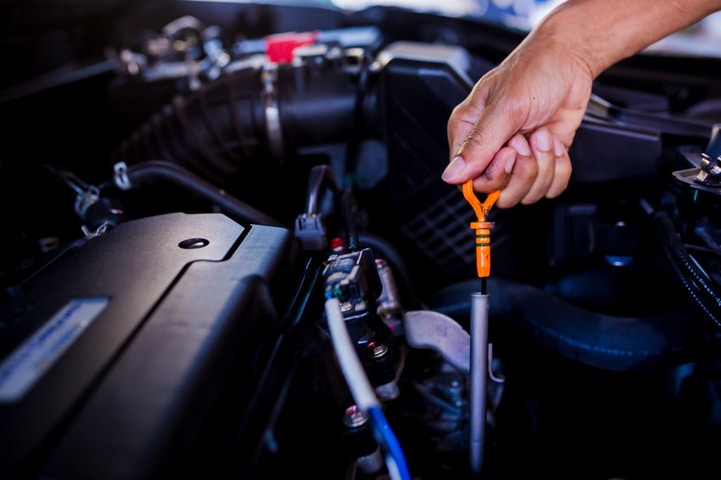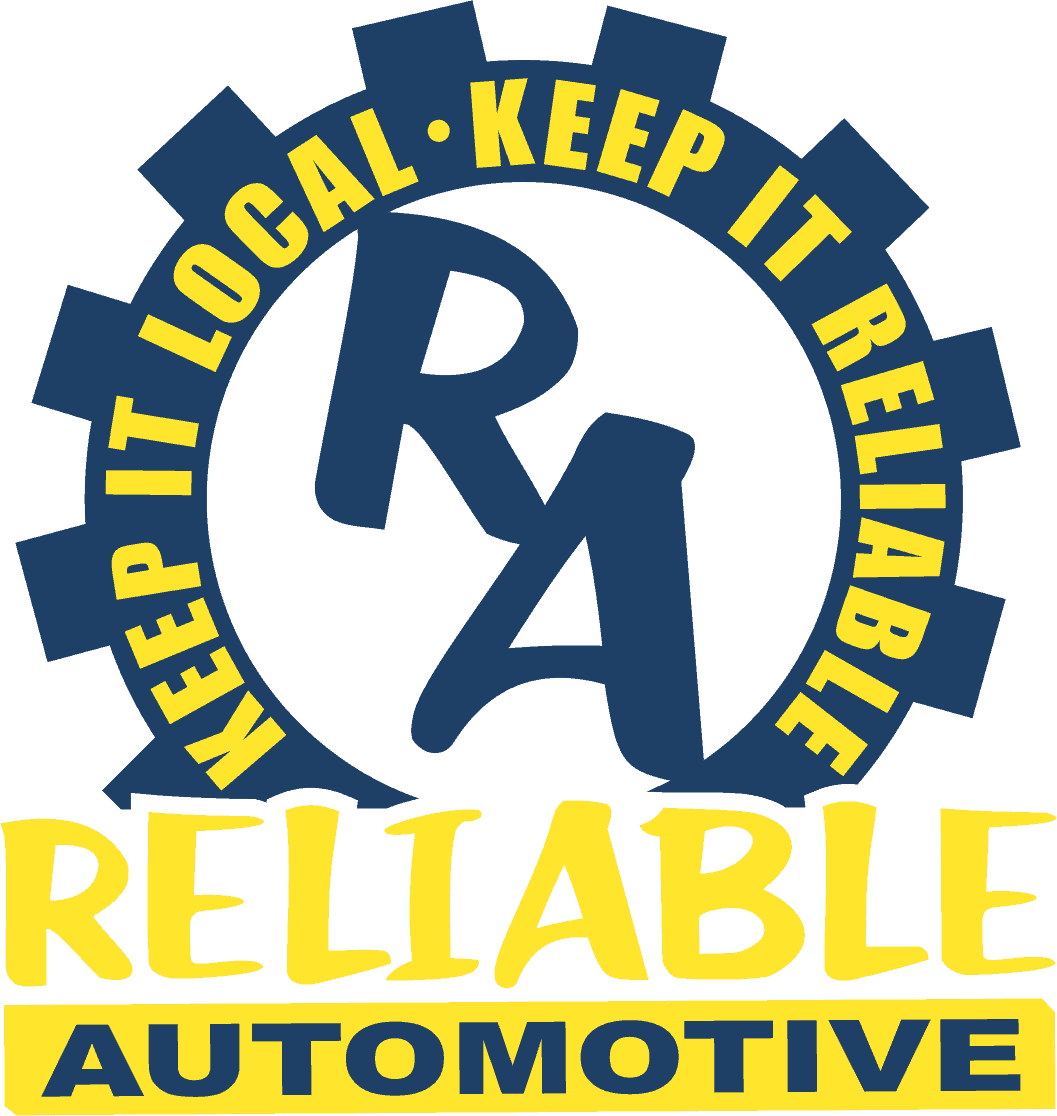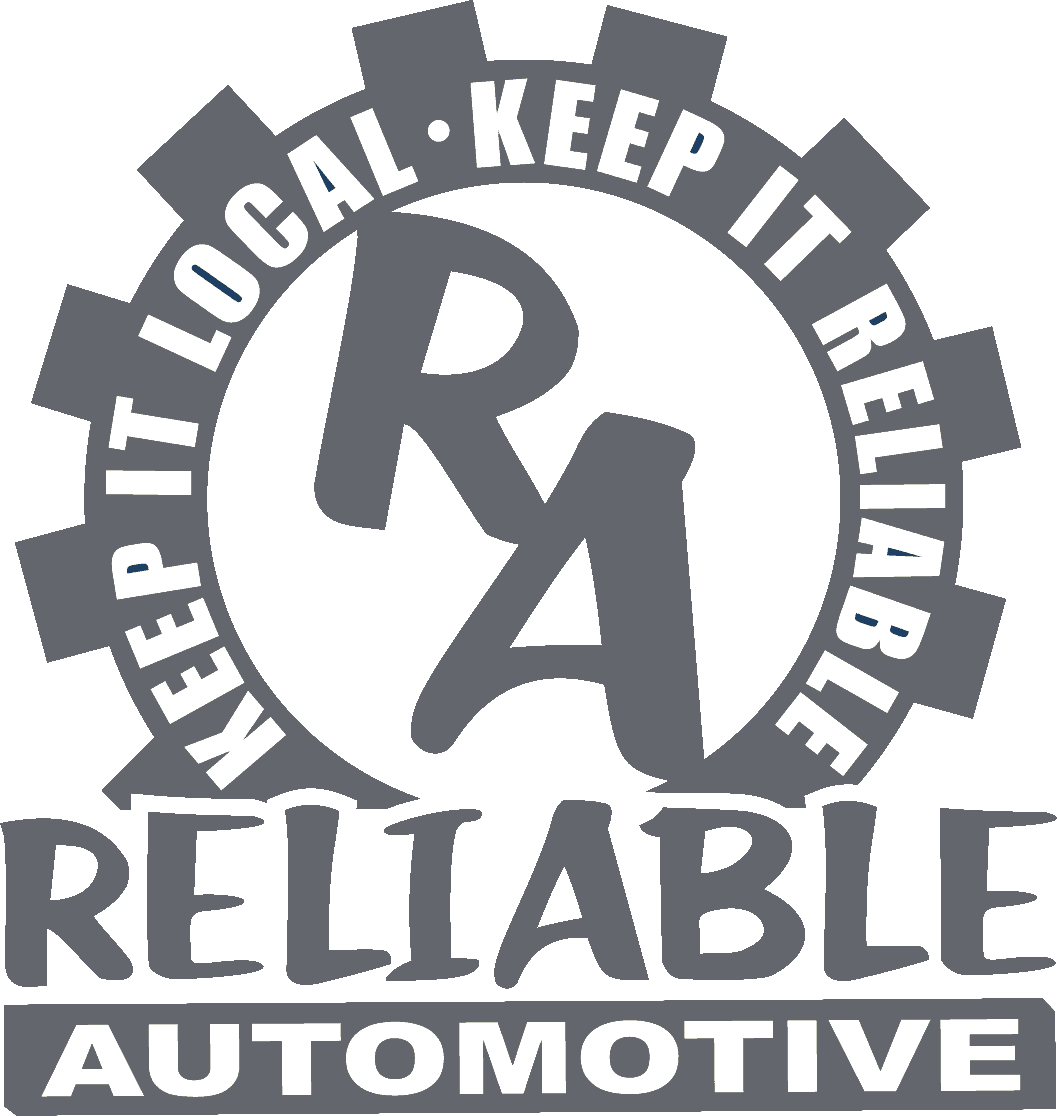
An oil change service is vital routine maintenance that helps to keep your vehicle in good shape. Clean oil can help to protect your engine and ensure efficient and smooth running. During a car oil change, old engine oil is replaced with new oil and the oil filter is also replaced, if necessary. Lack of regular oil changes can shorten the lifespan of your vehicle.
What Are the Benefits of an Oil Change Service in San Marcos?
In addition to keeping your car running smoothly and safely, regular oil changes have several benefits including:
A Cleaner and More Efficient Engine
Motor oil lubricates the moving parts of your engine and it removes dirt and debris, as well. However, the oil absorbs grime and debris over time as it cleans and lubricates your engine. Eventually, sludge will build up in your engine, and the oil will be too dirty to do its job properly. Changing your engine oil and filter frequently, especially if you drive long hours or on dusty roads, can help to keep dirt and debris out of your engine and prevent damage.
Better Fuel Efficiency and Gas Mileage
While gas mileage can be affected by many different variables such as your driving style and the driving terrain, a regular oil change can help to save you money on fuel. Clean engine oil reduces friction in your engine, helping it run more efficiently and it requires less gas than an engine running with old and dirty oil.
Longer Engine Life
Changing motor oil frequently keeps your engine healthy and protects all important moving parts from damage and wear. However, once engine oil gets dirty, it can no longer remove all dirt and debris or lubricate your engine efficiently. Changing your engine oil and filter at the manufacturer’s suggested intervals will help protect your vehicle’s engine, saving you several hundred dollars in repair costs down the line.
Reduced Environmental Pollution
Skipping car oil changes can be bad for the environment and may cause unnecessary pollution. Dirty oil causes a build-up of hydrocarbons in your engine. As a consequence, harmful pollution is released into the air. An engine running on clean and fresh oil releases far fewer pollutants.
Avoiding Potential Problems
If a car is not maintained adequately at regular intervals, something will eventually go wrong. If your car runs on old oil, you risk overheating your engine, which can cause breakdowns. Moreover, the worst-case scenario of not having regular oil changes is a completely ruined engine. Replacing an engine typically costs thousands of dollars. In many cases, it is not worth saving a vehicle with a completely broken engine.
A regular oil change is one of the cheapest ways to help your vehicle run at its best and extend the lifespan of your engine. Contact Reliable Automotive today to schedule an oil change or other service.
What Happens During an Oil Change?
An oil change service in Kyle, Buda, or virtually anywhere for that matter, entails more than simply pouring fresh oil into your engine. During a full-service oil change, our ASE-certified technicians will:
- Check the condition and level of your old oil
- Remove the old oil and dispose of it safely
- Remove and replace the old oil filter
- Pour new, fresh oil into your engine
- Perform a courtesy inspection of your vehicle
Why not simply top off the old oil?
If your oil level is dangerously low and you are in an emergency situation, topping off with new oil can be acceptable. However, in all other instances, vehicle owners should always do an entire car oil change. When you simply top off your old engine oil, the dirty and sludgy oil that is still present will stop the new oil from working efficiently. A complete oil change is affordable and by far the best way to keep your engine healthy and efficient.
The Different Types of Motor Oil Available for Oil Changes
When it comes to selecting the best type of engine oil, you have several different options. It is important to note that motor oils can differ drastically when it comes to price and levels of engine protection. Some of the main types of engine oil include:
Full-Synthetic
Full-synthetic oil is the Ferrari of motor oils. It lasts longer than many other types of engine oil and offers your engine superior protection and performance. However, full-synthetic oil is also the most expensive option.
Synthetic Blend
Synthetic blend oil is a good compromise between the pricier full-synthetic and conventional engine oil. Blended oils offer similar increased performance and added protection compared to synthetic oils at a more affordable price.
Conventional
Conventional motor oil is the cheapest option and can be a reasonable choice for cars with lower mileage and a simpler engine design. However, if you frequently drive long distances or are exposed to extreme driving conditions such as dusty roads and particularly high or low temperatures, conventional oil may not be the best option. Conventional oil typically has a shorter lifespan and may need replacing more often than synthetic oil.
High-Mileage
High-mileage motor oil is specifically designed for vehicle engines with over 75,000 miles on the clock. This type of oil provides extra protection for older engines and can help reduce oil consumption and emissions, as well as oil leaks.
How Often Should I Have an Oil Change Service in San Marcos?
When it comes to oil changes, there is no hard and fast rule that can be applied to all vehicles. The type of vehicle, its age, and your driving habits can all have an impact on oil change timing. If you generally drive long distances in extreme weather or other detrimental environmental conditions, you will most likely need to change your oil sooner than other drivers.
A good starting point for determining the timing of your oil change service is the manufacturer’s suggested oil change schedule, which you can find in your vehicle’s owner’s manual. However, you may need to have an oil change sooner if you are experiencing the following:
- Frequent stop and go traffic
- Towing heavy loads frequently
- Frequent long-distance and high-mileage driving
- Extreme temperature
- Driving on dirt roads or dusty roads frequently
Type of Engine Oil
The type of engine oil used in your vehicle can also determine the timing of your next oil change, as some engine oils last longer than others. Full-synthetic oil, for example, generally has a longer lifespan than blended and conventional engine oil.
Texas heat and dusty roads can result in your engine oil needing more frequent changes. To keep your engine performing well and avoid any unnecessary breakdowns or repair costs, we suggest a regular oil change schedule depending on your specific vehicle’s needs. Contact Reliable Automotive to find out more.
How Can I Save on Regular Oil Changes?
At Reliable Automotive, we want to help you keep your vehicle in good condition and we recognize that regular oil changes may not be expensive, but they can add up. We have regular special offers on a variety of services, including oil changes. Since our special offers change frequently, make sure you head over to our coupon page often to download oil change coupons that may come in handy during your next visit.
Schedule an Oil Change Service with Reliable Automotive Today
If you’re in search of a reliable shop to get regular oil change service in Buda, San Marcos, or surrounding areas, make Reliable Automotive your top choice. We provide you with the option to wait in one of our comfortable customer lounges or if you live within three miles of a Reliable Automotive service shop, you can take advantage of our concierge service. With this convenient service, we can pick up and return your vehicle for free. Contact us today with any questions or to schedule your appointment.
What are signs that my vehicle needs oil?
Here are the signs of low oil pressure:
- A clunking sound from the engine.
- Illuminated oil light on the dash.
- Overheated engine.
- Burning smell.
These red flags may mean that the engine isn’t getting enough lubrication to operate safely, and your car needs an oil change. The oil gasket might be damaged or faulty, allowing the oil to leak out. Whatever the cause, you should stop driving! You can cause additional damage if you continue to operate the car.
Contact Reliable Automotive and let our ASE-certified mechanics determine if you need an oil change in San Marcos, an oil change in Kyle, or an oil change in Buda! We cover the area to take care of you and your vehicles!
What are the major causes of low oil pressure?
- Using the wrong viscosity of oil. Viscosity refers to how easily the oil resists flow. It determines how a car’s engine reacts to the normal changes of pressure, speed, and temperature. If the wrong grade viscosity is used, the result can be low oil pressure and engine damage. To find out the correct oil to use, check the owner’s manual for your car. Then, consult with your Reliable Automotive service staff for additional advice.
- Oil leaks. The older your vehicle is, the more susceptible it is to oil leaks. But there are a number of fluids that can leak onto the floor under your vehicle. Oil is only one of them. No matter which fluid it is, it is critical to find out what is going on in your car’s engine to cause a fluid leak. If it turns out to be an oil leak, your mechanic will know what needs to be done to correct that problem.
- Bad oil pump or pressure sensor. The oil in a vehicle needs to travel through the engine to lubricate all the moving parts. The oil pump generates the pressure to take care of this duty. This pump also has a sensor that measures the pressure in the system. If the pressure drops below a certain level, the dashboard light turns on. At that point, it is important to pull over and turn the engine off. Engine parts can seize up and stop working if they become dry.
- Dirty oil filter. The oil filter catches debris before it flows into the oil. This prevents the oil from becoming dirty as it lubricates the engine and all those moving parts. Oil with contaminants can’t do its job properly, plus the filter can become clogged, too. That is another reason for sticking to a schedule of regular oil and oil filter changes.
- Inconsistent oil change service. The primary reason for following a schedule of oil change service is to prevent all of the above. Your Reliable Automotive oil change specialists can identify problems with oil pressure and faulty oil filters before those problems damage the engine in your car.
Does the climate affect the oil in my car?
Yes! Remember that temperature affects how oil flows. In cold weather, your engine may be a bit slow starting in the morning. The oil thickens during the night, and more energy is needed to push it through the engine. The car’s crankshaft has to work harder to push through the thick oil. Over time, this extra energy weakens the system.
However, in warm or hot weather, the oil is thin, and it circulates easier. The rest of the system doesn’t have to work so hard.
Ask your Reliable oil change specialist to recommend the proper oil viscosity based on the climate where you live.
Can I switch brands or grades of oil between oil changes?
Yes. The most important factor is to make sure the oil being used follows the recommendations outlined in your owner’s manual. And, as we saw earlier, it may be important to change viscosities based on climate needs. In addition, your oil specialist may be able to recommend a better brand of oil for what you need your car to do. There also isn’t any problem associated with changing between conventional and synthetic (or synthetic blend) oils.
What are oil additives, and what do they do?
They are chemical compounds designed to improve the lubricating feature of oil. Most lubricants, both synthetic and petroleum based, have additives (from 10 to 30%).
Additives for motor oil used in vehicles have three purposes:
- Enhance existing base oil properties.
- Suppress undesirable base oil properties.
- Give new properties to base oils to enhance performance.
Oil already has additives, as noted above. But those additives are lost over time. If they aren’t replaced, there is a risk of more wear and tear on the engine. And that results in all kinds of problems with your car.
You can buy a supplemental additive and use it to replace the lost additives. But how do you know you are adding the right additives? And what effect are they having on the additives that remain?
Here are two things to think about when deciding if purchasing new oil additives are a good idea for your vehicle:
- Warranty: You don’t want to void your warranty by adding anything to your car before checking how it will affect the terms of the warranty.
- Mileage and Vehicle Age: A high-mileage car is more likely to suffer damage from loss of additives over time. It can be helpful to your car’s engine to add carefully selected oil additives to engine oil designed for high-mileage cars. This helps restore engine performance to original levels.
Do your research, read your owner’s manual, particularly if your car is still under warranty, and ask your Reliable Automotive oil specialist for input. They are experts in this area and will use their professional experience to help you decide what to do.
Is diesel engine oil better?
Diesel engine oil has a higher viscosity and lower-temperature pumping needs compared to gas engine oil. Also, diesel motor oils have more additives because diesel engines work dirtier. One result is that they need the oil and filter changed more often.
There is debate in the industry if using diesel oil in gasoline engines is advisable. Some say that if it is used in gas engines, issues like heat generation, premature wear and tear, and more can occur. There are many consumers who believe diesel oil will increase performance in any vehicle. This isn’t automatically true.
Recently, the American Petroleum Institute (API) added a new category to oil: “C” for diesel oil and “S” for gas engines. Finding a diesel engine oil that carries both categories has become more common. If a diesel oil is labeled as both “C” and “S”, it can safely be used in a gasoline engine. However, if the “S” category specification is not noted on the diesel oil, you should not use it in a gas engine.
Is there an advantage to draining oil over siphoning it out of the car?
This seems like an unimportant issue, but maybe not. Let’s look more closely:
Draining Engine Oil: The plug is removed from the oil reservoir and the oil drains out of the bottom.
Extracting Engine Oil: The oil is removed using a vacuum device inserted into the dipstick funnel.
There are pros and cons to both methods. The biggest concern with siphoning seems to be getting all the oil (and any contaminants) out of the bottom of the pan. Those who prefer draining believe that all the oil is removed simply from gravity working in your favor.






